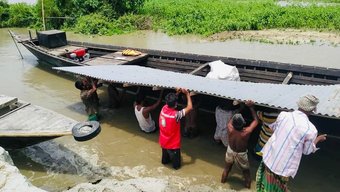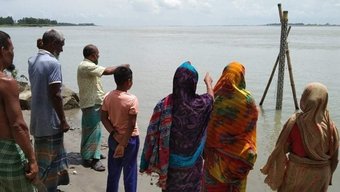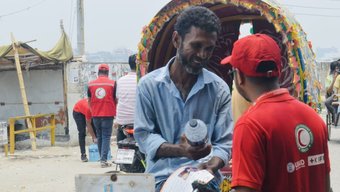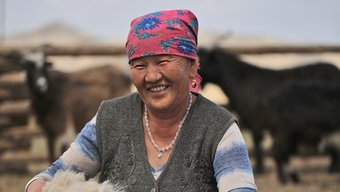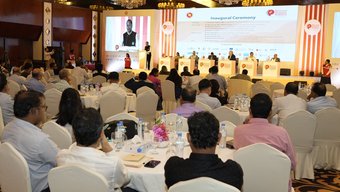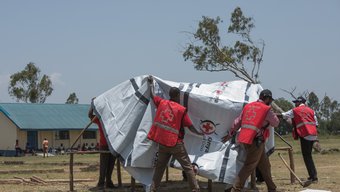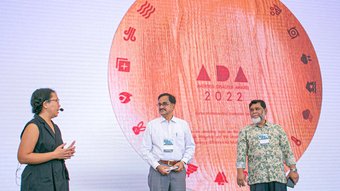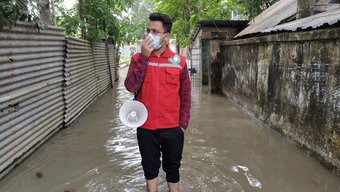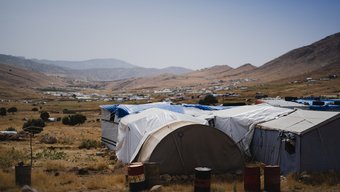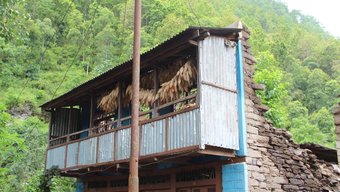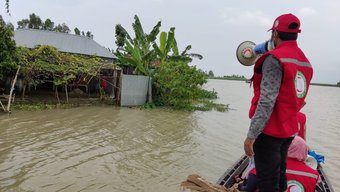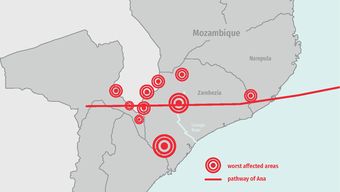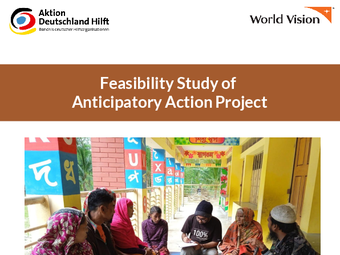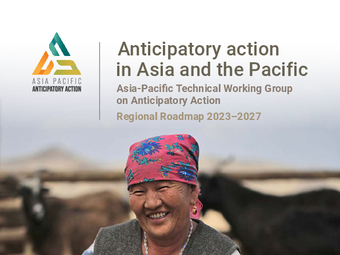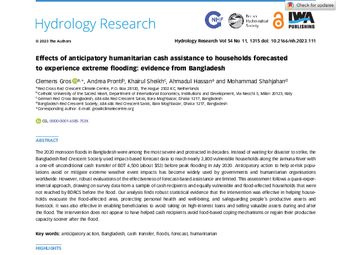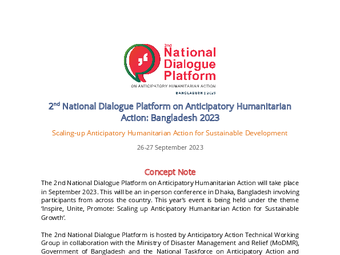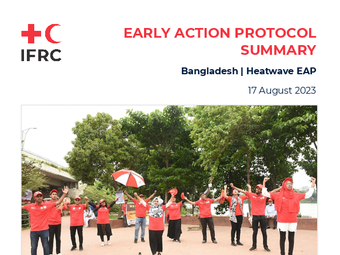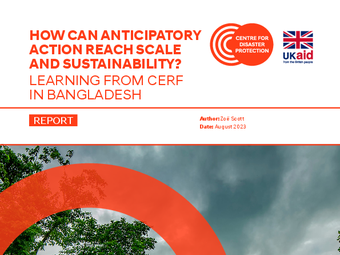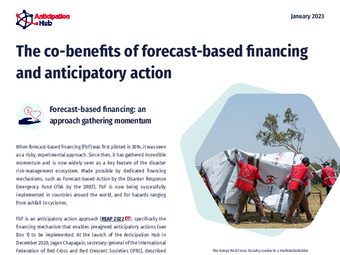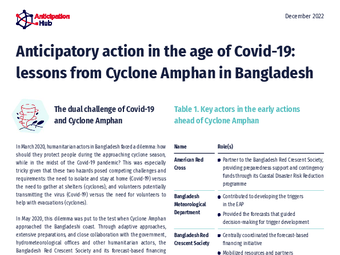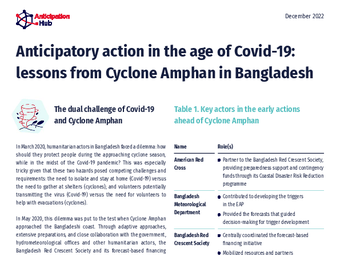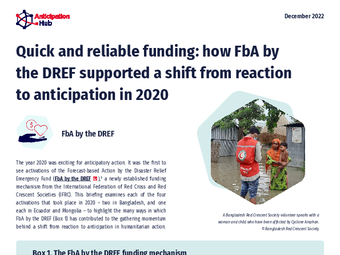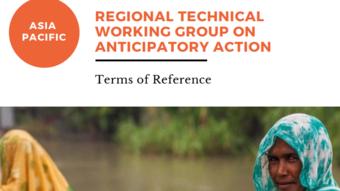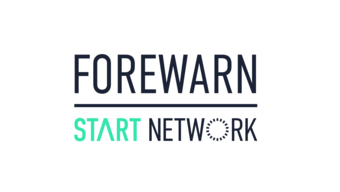Categories
Bangladesh country profile
BACKGROUND
Bangladesh is a low-lying country with a flat topography. It has huge inland water bodies and some of the largest rivers in the world. Eighty per cent of Bangladesh's annual rainfall occurs during the monsoon season (June to October), resulting in flooding that affects around 25 per cent of the land area each year. Flooding that covers 60 per cent of the country’s land mass occurs every four to five years.
Its position on the Bay of Bengal exposes 70 per cent of the population to cyclones coming from the Indian Ocean, which occur once every three years on average. Other hazards include earthquakes and drought. Bangladesh is also one of the world's least-developed countries, leaving many people with few resources to cope during times of disaster.
INFORM RISK INDEX (2022)
Hazard and exposure: 6.9 | Vulnerability: 5.4 | Lack of coping capacity: 5.0 | Total: 5.7 (high) | Rank: 27
HAZARDS COVERED BY ANTICIPATION
Cyclones | Floods | Heat wave
EXPERIENCE ON ANTICIPATION
- In response to this hazard profile, the Bangladesh government has invested heavily in coastal resilience and saving lives, for example through the Standing Order on Disasters and the Cyclone Preparedness Program.
- The Bangladesh Red Crescent Society works closely with the World Food Programme (WFP) and other civil society actors to advocate for early action, and to assist the government in developing national policies around anticipatory action. These collaborative advocacy efforts were instrumental in getting anticipatory action included in Bangladesh’s Standing Order on Disasters - an important part of the disaster regulatory framework that govern's the country's disaster preparedness and response.
- To date, Bangladesh has implemented early actions more than any other country, with triggers being activated four times by the Bangladesh Red Crescent Society, three times by the Start Network, and twice by WFP. In 2020, a joint response to flooding reached some 30,000 people.
- Bangladesh is also a pilot country for OCHA-facilitated collective anticipatory action. A first activation took place in 2020, where some 220,000 people were reached before peak flooding. Based on learnings from 2020, the revised and active pilot covers some 410,000 people.
Read more about projects, resources, activations and working groups below.


